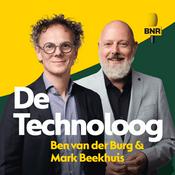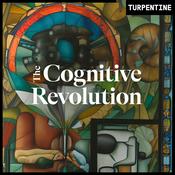12 afleveringen
- In this bonus episode of the Code Green podcast, team members Dona, Meredith & Tammanna reflect on the season. They discuss the project's origins & their experiences of curating the podcast & newsletter. Their key takeaways include the need for nuance in discussions about AI's environmental impact, & questioning the focus on hyper-growth & efficiency. They emphasise the importance of situated understanding, participatory methods, & addressing the underexplored lens of abandoned technology infrastructure. Looking ahead, they express interest in exploring critical minerals & AI in India, & the intersection of AI & conservation.
Speakers
Dona Mathew is a lawyer with experience in public policy research & legislative drafting. At Digital Futures Lab, her work focuses on the ethical dimensions of data & AI, particularly at the nexus of climate action & legal institutions. She has been part of DFL’s AI & Climate Futures in Asia work with The Rockefeller Foundation. Since 2024, she has been leading research & coordinating efforts for the Code Green series.
Meredith Stinger is a qualitative researcher & curator. As a consultant with Quicksand, she has worked on projects exploring the social dimensions of technology design & implementation.
As a 2023 Fulbright-Nehru Student Research Fellow, she conducted ten months of ethnographic fieldwork in India, examining the social & political implications of the Aadhaar digital identity system. Her research has focused on exploring the materiality of digital systems & what these practices reveal about power, access & belonging in the digital age. She is particularly interested in the intersection between official technology policy discourse & lived experiences, focusing on how communities adapt to & navigate emerging digital systems.
Tammanna Aurora is a lawyer, researcher, & curator interested in spaces where questions of art, law, policy, climate, & technology meet. Her work explores the role of qualitative data, stories, & lived experience in decision-making within formal legal & scientific frameworks. She currently works on When The Earth Testifies with Agami, leads a fellowship for law students called SOCH, & is building temp.mag, an interdisciplinary research + media studio.
You can read the transcript for this episode here.
Show Notes
AI for Climate Action Innovation Factory
AI-for-climate grand challenge
Texas residents urged to take shorter showers
Mistral AI’s lifecycle analysis of AI models
UNDP in Asia & the Pacific launches ‘Una’
ICRISAT & Partners launch AI-powered climate advisory initiative to boost farmer resilience
AI supply chain threatens climate progress in East Asia
Responsible AI Strategy for the Environment
Climate Change & AI: Recommendations for Government
Three Mile Island Nuclear Reactor to restart to power Microsoft AI operations
Episode 06: Material AI & the mineral supply chain with Tom & Tamara
Issue 01: The State of (power) Play
Hungry thirsty data centres
GeoAI meets Climate Action
Izni’s paper on modelling public social values of flood-prone land use using the GIS application SolVES
Ep 04: AI & biodiversity conservation in Asia with Eleanor & Robin
Ep 03: Cutting through the hype of AI for climate action with Cindy & Sherif
Ep 05: AI & energy transitions in Asia with John & Priya
Ep 08: Locating sust(AI)nability in the smart city with ChengHe & Raj
Ep 02: Agriculture 4.0 & the future of Asia’s farmers with Anubha & Neth
Agriculture & weather forecasting case study
“No more false solutions!”
Episode 09: Funding&framing Asia’s climate futures with Hanyuan & Luis Felipe
What’s going on with China’s ghost cities?
The invisible seafaring industry that keeps the internet afloat
Abandoned solar farms
Just good enough data
Credits
Audio Editing: Creator Studio Goa by Winfluence Media
Production Support: Shivranjana Rathore & Dona Mathew
Attributions
Intro & Outro: Retro Sounds, Alban_Gogh
Transitions - Meditative Background Music, white_records - Across this series, we’ve traced the many emergent tensions between AI as both a potential solution and barrier to addressing the world’s most urgent climate and environmental dilemmas. In this final episode, Hanyuan ‘Karen’ Wang and Luis Felipe R. Murrillo discuss the complex arena of climate finance - highlighting these key tensions and potential pathways forward. Hanyuan discusses the need for tools for businesses to navigate the complex climate policy landscape, and the role of private-sector involvement. Luis highlights the difficulties of collecting quality climate data, the importance of data stewardship in bridging the gaps between experts and community needs, and the potential of ‘commoning’ as a way to envision alternate, sustainable frameworks and funding models.
Speakers
Hanyuan ‘Karen’ Wang
CEO and Founder, Climind
Climind is a platform that delivers actionable climate data infrastructure through AI technologies to facilitate mitigation and adaptation solutions. Hanyuan (Karen) Wang is the first Chinese female to be selected as a Young Leader for the SDGs recognized by the United Nations. Additionally, she serves on the board of NGOs globally, including being the youngest Board of Directors for the Foundation for the Museum of the United Nations - UN Live. She is also on the Advisory Board Members of AI Hong Kong. Karen was a research assistant at Imperial College London's Centre for Climate Finance and Investment (CCFI), where her work centers on voluntary carbon markets, climate risks, and nature-based solutions with a particular focus on the Asian Market . She was named to Forbes' 30 Under 30. She went to Hong Kong Baptist University, Imperial College London, and is a Schwarzman Scholar from Tsinghua University.
Luis Felipe (LF) R. Murillo
Assistant Professor of Anthropology at University of Notre Dame
Luis Felipe R. Murillo’s work is primarily dedicated to the study of the intersections between computing and politics from an anthropological perspective. Based on long-term, collaborative ethnographic research, his research explores questions of commoning and anti-commoning in science and technology. Across several projects spanning hacker networks in the Pacific Rim to open technology development at CERN, LF's work investigates how underground computing collectives design and implement digital technologies in response to pressing social, political, and environmental issues. He is the author of Common Circuits: Hacking Alternative Political Futures recently published by Stanford University Press.
You can read the transcript for this episode here.
Show Notes
Sir Jim Skea
Oslo Energy Forum
Japan 2011 Disaster
New Expert Eyes Over Fukushima: Open Source Responses to the 3/11 Disaster in Japan
Community Office Navigating the New Arctic (NNA)
Camera Traps in Code Green Call of the W(AI)ld
Singapore Carbon Tax
Saudi Green Initiative
HKU Jockey Club Enterprise Sustainability Global Research Institute
ICLR 2025
illuminem ESG tracker
ISSB's new standard
Sustainability and Climate Risk by GARP
Hong Kong Science & Technology Park
Hong Kong ESG standards and Index
SEEKCommons
Check out the Code Green glossary for more terms.
This podcast series is accompanied by a monthly newsletter - sign up for updates here. For more about this project, visit our website codegreen.asia
Credits
Audio Editing: Creator Studio Goa by Winfluence Media
Production Support: Shivranjana Rathore and Meredith Stinger
Cover Design: Nayantara Surendranath
Attributions
Intro and Outro: Retro Sounds, Alban_Gogh
Transitions - Meditative Background Music, white_records - Amidst rapid urbanisation, Asia’s urban centres are increasingly turning to smart solutions as they grapple with worsening air pollution, rising emissions, and erratic weather patterns. What role can data and AI play in shaping more sustainable urban futures? In this episode, ChengHe Guan and Raj Cherubal discuss the future of digital urban transformation, with a focus on smart and sustainable city initiatives in China and India. ChengHe explores how urban sensing techniques and fine-grained data analysis can shed light on pathways to more responsible and inclusive cityscapes. Raj draws on his experience as former CEO of India’s flagship Smart City project in Chennai, revealing the ground-level complexities at the intersection of city systems and climate resilience, as well as the potentials of AI and digital tools for institutional capacity and urban planning. Together, they emphasise that while data and AI are potentially valuable tools, they must be guided by thoughtful policy and inclusive design. They call for the consideration of societal behaviour in planning, stronger global partnerships and cross-disciplinary knowledge sharing to avoid redundant efforts and co-create cities that are equitable, safe, and accessible for all.
You can read the transcript for this episode here.
Speakers
ChengHe Guan
Director of the Shanghai Key Laboratory of Urban Design and Urban Science, Assistant Professor of Urban Science and Policy, NYU Shanghai; Global Network Assistant Professor, Wagner Graduate School of Public Service, NYU ChengHe Guan is an Assistant Professor of Urban Science and Policy at NYU Shanghai, Global Network Assistant Professor, and PhD Advisor at NYU Wagner and is the founding co-director of the Shanghai Key Laboratory of Urban Design and Urban Science. He is affiliated with the School of Engineering and Applied Sciences at Harvard University, the School of Ecology and Environmental Sciences at East China Normal University, and NYU Tandon School of Engineering. Additionally, he serves as a senior research consultant to the Centre on Migration, Policy and Society at the University of Oxford.
Raj Cherubal
Raj was CEO of Chennai Smart City Ltd. for six years, the flagship initiative of the Government of India to improve city infrastructure and services. Earlier, he was Director-Projects at Chennai City Connect, a platform for industry associations and civic organisations. He has a background in computational physics, visualisation, telecom and finance. He has worked on projects in sustainable transportation, urban planning and integrated, multi-modal public transportation, solid waste management, urban water body restoration, sustainable financing of urban infrastructure, and redevelopment of business districts and regional planning. He has worked to promote decentralisation and good urban governance, as well as economic freedom for entrepreneurs in the informal sector. He holds a M.S. in Physics from the University of Louisville and a M.S. in Nuclear Engineering from the University of Michigan, Ann Arbor.
Show Notes
India Smart Cities Guidelines
Urban Metabolism Theory
Fumihiko Maki
The Ian L. McHarg Center for Urbanism and Ecology
Delineating urban park catchment areas using mobile phone data: A case study of Tokyo
Command and Control Centre
AI + Climate Futures in Asia
SP Services and the Energy Market Authority Electricity Saving Pilot
Quantum Urbanism
Urban Climate Community Project
100RC Resilience, C40 and ITDP
Plastic Odyssey
Check out the Code Green glossary for more terms.
This podcast series is accompanied by a monthly newsletter - sign up for updates here. For more on the project, visit codegreen.asia
Credits
Audio Editing: Creator Studio Goa by Winfluence Media
Production Support: Shivranjana Rathore and Meredith Stinger
Cover Design: Nayantara Surendranath
Attributions
Intro and Outro: Retro Sounds, Alban_Gogh
Transitions - Meditative Background Music, white_records - As population growth, motorisation, and climate change strain urban mobility in the Asian region, the design and delivery of transport services are becoming increasingly complex. Experts Huê-Tâm Jamme and Kris Villanueva-Libunao explore why cities need equitable, people-centred planning that accounts for existing mobility patterns and what barriers exist to implementing AI for mobility. Hue-Tam emphasises the role of political will in shaping new transport modes that should not only support networks of economic activity but also enhance urban vibrancy and local culture. Kris juxtaposes AI’s potential to improve traffic management, sustainability, and safety with the need for strong data governance and capacity building for equitable AI implementation in the region. Together, they advocate for stakeholders to view mobility infrastructure as systems that impact people’s economic, social and cultural lives.
You can read the transcript for this episode here.
Speakers
Kris Villanueva-Libunao
CEO, SmartCT
Kris R. Villanueva-Libunao is a leader in digital governance, AI policy, and smart cities including smart mobility. As Executive Director of SMARTCT-Philippines, she leads initiatives integrating AI and data-driven solutions into urban planning, leading projects such as the Smart LGU Assessment and Growth Map to optimise mobility and infrastructure in local governments. Her expertise in AI governance is underscored by her role as AI Country Lead Researcher for the United Nations International Telecommunication Union (ITU), where she advanced policies to enhance gender-sensitive AI adoption in Southeast Asia. Kris has authored publications, including “Artificial Intelligence Policies to Enhance Urban Mobility in Southeast Asia”, and co-developed the Philippine National Transportation Strategy.
Huê-Tâm Jamme
Assistant Professor, Arizona State University
Huê-Tâm explores the effects of new technologies on space and society, especially on how people move, work, shop, and socialize in cities, asking how we can shape urban spaces that are more livable, accessible, and equitable? Jamme has led projects on car-free living in the US, automated food vending in France, and the platform economy in Southeast Asia. Her research interests span mobility, retail, transit-oriented development (TOD), and public space. Through her theory of "productive frictions", she explains how motorbike mobility in Vietnam produces high opportunities for commercial and social interactions on city streets; and why the rapid adoption of cars and mass transit will likely reduce the level of urban productive frictions..
Show Notes
Tomtom Traffic Index 2019
Global status report on road safety 2023
JICA Philippines Annual Report 2023, JICA Roadmap for Transport Infrastructure for Metro Manila 2014
Mobility over Air Quality Index (MAQI)
Doing Urban Development Fieldwork: Motorbike Ethnography in Hanoi (2018)
Informal transport in the Philippines
Clean Energy and Decarbonization in Southeast Asia
Singapore's 'AI Traffic System' set to tackle Phuket's congestion, A Smarter Way to Manage Mass Transit in a Smart City
JICA Survey Transit Oriented Development in Vietnam (2016)
The production of new mobilities: a theoretical framework to the politics of mobility transitions
Seoul Open Data
Digital Adoption in the Philippines
National Strategic Transportation Strategy
Smart City Assessment and Roadmap Development Project
Check out the Code Green glossary for more terms.
This podcast series is accompanied by a monthly newsletter - sign up for updates here.
For more about this project, visit our website codegreen.asia
Credits
Audio Editing: Creator Studio Goa by Winfluence Media
Production Support: Shivranjana Rathore and Meredith Stinger
Cover Design: Nayantara Surendranath
Attributions
Intro and Outro: Retro Sounds, Alban_Gogh
Transitions - Meditative Background Music, white_records - AI is often framed as the future of progress, but what fuels this revolution? Behind every data centre, semiconductor, and AI model lies a hidden world of resource extraction, geopolitical power struggles, and environmental destruction. In this episode, we dig into the raw materials powering AI—from rare earth mining to data centres sucking up water in drought-prone regions. Experts Tom Özden-Schilling and Tamara Kneese reveal the true cost of AI’s rapid expansion—its human and ecological toll—and why the conversation on sustainability must move beyond carbon footprints to the messy realities of global supply chains.
You can read the transcript for this episode here.
Speakers
Dr. Tom Özden-Schilling
Tom Özden-Schilling is Presidential Young Professor of Sociology and Anthropology at the National University of Singapore. His first book, The Ends of Research: Indigenous and Settler Science after the War in the Woods, is an ethnography of environmental deregulation in western Canada, and its effects on Indigenous and settler researchers’ struggles to maintain long-term forestry experiments and sovereignty projects. Tom’s current project examines the social costs of green energy transitions through the emergence of new critical minerals research and development initiatives in the United States, Malaysia, and Australia. Before joining NUS, Tom was Assistant Professor of Anthropology at Johns Hopkins University.
Dr. Tamara Kneese
Dr. Tamara Kneese directs Data & Society Research Institute's Climate, Technology, and Justice programme. Previously, she led Data & Society's Algorithmic Impact Methods Lab (AIMLab). Before joining D&S, she was lead researcher at Green Software Foundation, director of developer engagement on the Green Software team at Intel, and assistant professor of Media Studies and director of Gender and Sexualities Studies at the University of San Francisco. She is the author of Death Glitch: How Techno-Solutionism Fails Us in This Life and Beyond (Yale University Press, 2023). Tamara holds a PhD in Media, Culture and Communication from NYU.
Check out the Code Green glossary for more terms.
This podcast series is accompanied by a monthly newsletter - sign up for updates here. For more about this project, visit our website codegreen.asia
Show Notes
Mountain Pass Rare Earth Mine
Australia's first rare earths processing plant opens in Kalgoorlie
Nvidia: what’s so good about the tech firm’s new AI superchip?
Value creation in the metaverse
Crypto's Climate Impact: 8 Claims, Fact-Checked
IEA Electricity 2024 Report
Ethereum's energy usage will soon decrease by ~99.95%
Granbury Residents Sue Local Bitcoin Mine Over Health-Threatening Noise Pollution
Boom and Bust: The Fight over Bitcoin Mining in New York State
Measuring AI’s Environmental Impacts Requires Empirical Research and Standards
A New Front in the Water Wars: Your Internet Use
Air Pollution and the Public Health Costs of AI
The women who made America’s microchips and the children who paid for it
Controversial rare earths plant in fight for survival in Malaysia
Biden is scrambling for minerals. This U.S. cobalt mine just closed
The Pilbara Crisis: Resource Frontiers in Western Australia
The Data Annotation Industry in the Global South
AI Governance in Malaysia Report | Khazanah Research Institute
EU Artificial Intelligence Act
Data Centre Alley
Credits
Audio Editing: Creator Studio Goa by Winfluence Media
Production Support: Shivranjana Rathore, Meredith Stinger
Cover Design: Nayantara Surendranath
Attributions
Intro and Outro: Retro Sounds, Alban_Gogh
Transitions - Meditative Background Music, white_records
Meer Technologie podcasts
Trending Technologie -podcasts
Over Code Green
A monthly dispatch and expert-led podcast series exploring the intersection of AI and Climate Action in Asia.
Brought to you by Digital Futures Lab, in collaboration with Earth Venture Foundation.
Podcast websiteLuister naar Code Green, Darknet Diaries en vele andere podcasts van over de hele wereld met de radio.net-app

Ontvang de gratis radio.net app
- Zenders en podcasts om te bookmarken
- Streamen via Wi-Fi of Bluetooth
- Ondersteunt Carplay & Android Auto
- Veel andere app-functies
Ontvang de gratis radio.net app
- Zenders en podcasts om te bookmarken
- Streamen via Wi-Fi of Bluetooth
- Ondersteunt Carplay & Android Auto
- Veel andere app-functies


Code Green
Scan de code,
download de app,
luisteren.
download de app,
luisteren.








































